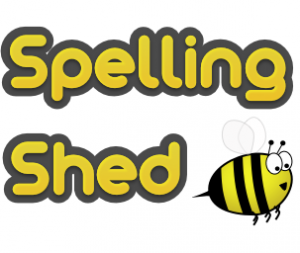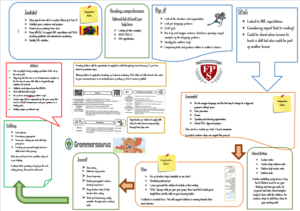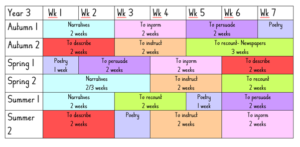Our Vision
At Ferndale we want to engage and support children in becoming capable and adventurous writers. We want children to be exposed to a variety of different genres and stimuli to support them in becoming confident in writing for a range of genres. We strive to provide an engaging and enriching sequential learning experience, which immerses the children. Through this curriculum, children are enabled to express themselves creatively and imaginatively as they become enthusiastic and critical writers of stories, poems and non-fiction texts.
Intent:
- to enable children to speak clearly and audibly, and to take account of their listeners and provide a rich and stimulating language environment, where speaking and listening, reading and writing are integrated;
- to encourage children to listen with concentration, in order to identify the main points of what they have heard;
- to show children how to adapt their speech to a wide range of circumstances and demands;
- to teach children effective communication, both verbal and non-verbal, through a variety of drama activities;
- to help them to become confident, independent writers, through an appropriate focus on word-, sentence- and text-level knowledge;
- to develop enthusiastic and reflective readers, through contact with challenging and substantial texts;
- to foster the enjoyment of writing, and a recognition of its value;
- to encourage accurate and meaningful writing, be it narrative or non-fiction;
- to improve the planning, drafting and editing of their written work and enable children to write in a variety of styles and forms showing awareness of audience and purpose;
- develop the powers of imagination, inventiveness and critical awareness in all areas of literacy.
Implementation:
Our writing journey has been specifically designed to allow the children to write for a range of genres. By selecting interesting, engaging and appropriately challenging stimuli, the children will be exposed to quality, age-appropriate models consistently throughout their school life. Units of work, which are balance of fiction and non-fiction, are created upon themes and staff are encouraged to provide the children with ‘real-life’ writing opportunities e.g. Writing to our local councillors about parking or letters to Michael Gove about Palm Oil production. We believe shared and demonstrative writing are critical in exposing children to a range of language and sentence structures. Teachers are committed to supporting children in ‘living’ real or imagined experiences through the lenses of the Writing Rainbow. Staff are encouraged to prepare their lessons with key quotes and vocabulary from a range of authors to support children in understanding the intent and purpose of their writing whilst also being immersed in rich, quality ideas and sentences.
Impact:
Children should:
- Know, understand and be able to write in a range of genres in fiction and poetry and understand and be familiar with some ways in which narratives are structured through basic English ideas of setting, character and plot;
- understand and be able to write in a range of non-fiction genres and structure text in a style suited to its purpose;
- use grammar and punctuation accurately;
- have an interest in words and develop a growing vocabulary;
- write creatively and enjoy writing;
- plan, draft, revise and edit their own work;
- understand and use phonic systems and spelling conventions.



